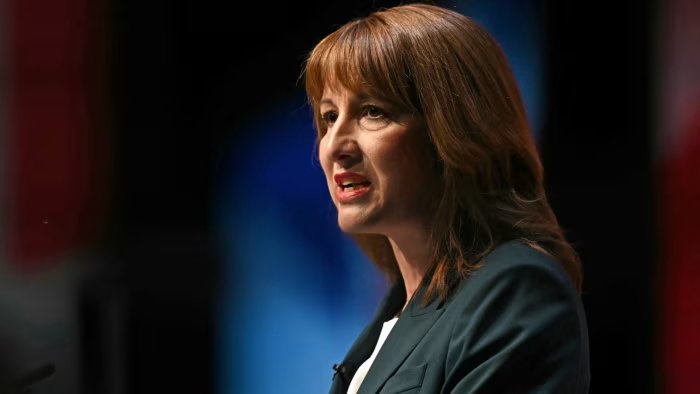Unlock the Editor’s Digest for free
Roula Khalaf, Editor of the FT, selects her favourite stories in this weekly newsletter.
Rachel Reeves has been warned of the risks of backloading her efforts to rein in borrowing in Wednesday’s Budget after official figures showed the chancellor is already struggling to meet her debt targets.
Her biggest tax-raising measure is expected to be an extended freeze on personal tax thresholds that will only generate extra revenue from 2028-29. Reeves has abandoned a planned income tax rise that would have kicked in quickly.
Other expected tax measures, like raising council tax on expensive properties, introducing charges on electric vehicles, and a raid on salary sacrifice pension schemes, could also take time to enact, say analysts.
“[A] smaller, messier, backloaded fiscal tightening risks a negative market reaction,” said Andrew Wishart, UK economist at Berenberg Bank.
Reeves is already on thin ice with investors after the latest official figures on Friday showed government borrowing in the current fiscal year is nearly £10bn higher than predicted by the Office for Budget Responsibility in March.
Her failure to push ahead with a manifesto-busting plan to raise billions of pounds by raising income taxes has also unnerved markets, with investors seeing it as a sign of political weakness. Treasury officials have insisted the U-turn was due to better than expected economic forecasts.
Officials have signalled that the Budget will include an increase in the buffer Reeves holds against her promise to fund day-to-day spending entirely with tax receipts by 2029-30, from £9.9bn to at least £15bn.
But the scale and pace of the near-term borrowing that Reeves is planning before that point will be critical as investors weigh the package on Wednesday. As will the details of any spending cuts she reveals.
Investors said they would be sceptical if, for example, the chancellor pencilled in spending restraint for 2029-30 to help meet her fiscal rule, given how hard it is to rein in government expenditure close to an election.
The next UK general election must take place by August 2029.
“Market participants want for the headroom to be increased, but also for revenue raising measures to be frontloaded and disinflationary,” said Bruna Skarica, UK economist at Morgan Stanley. “If the consolidation is entirely backloaded, the market might discount it from materialising.”
“We have to put a probability on promises not being followed through,” said Gordon Shannon, a fund manager at TwentyFour Asset Management. “For a government that has struggled to show it has the political will on matters such as welfare and income tax, trust is in short supply.”
In the Budget, the chancellor is expected to extend a benefit fraud crackdown that was due to end in 2029-30.
The £1.2bn of extra savings from the extension of the Targeted Case Review scheme will not occur until 2030-31, however, in the next parliament.
Alongside the Budget, the UK’s Debt Management Office will also update on its bond issuance plans, a key forecast given this year’s turbulence in gilt markets.
Investment banks expect the DMO to upgrade its expected debt sales for the current 2025/26 fiscal year from £309bn to around £320bn, according to an average of five bank estimates seen by the Financial Times.
The debt issuance, a record outside the Covid borrowing surge, is then expected to fall, with analysts at RBC Capital Markets putting it at £252bn for 2026/27, and JPMorgan at £266bn.
Rob Wood, chief UK economist at Pantheon Macroeconomics, said “ditching” the income tax rise was likely to mean “more issuance than previously thought next [fiscal] year”.
Moyeen Islam, a strategist at Barclays, added that the market is going to pay even more attention to the “construct of the forecasts” after the U-turn on raising income tax rates.
“All it takes is for people to feel doubtful, or to have questions about the underlying assumptions, and then you are getting into an unravelling process,” he added.
The Treasury said: “The chancellor will deliver a Budget focused entirely on the priorities of the British people. That means cutting waiting lists, cutting national debt, and cutting the cost of living.
“We will be taking the decisions to build more resilient public finances with the headroom to withstand global turbulence, giving businesses the confidence to invest, and leaving government freer to act when the situation calls for it.”

